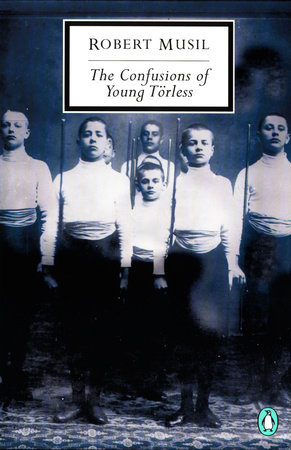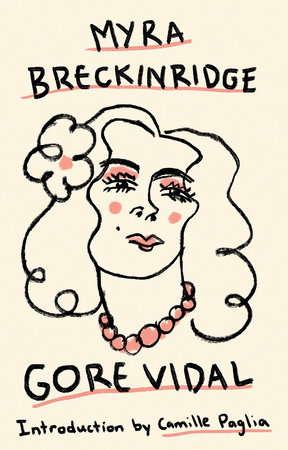My debut novel, Permission, is about love, loss, and erotic awakening in a Los Angeles coastal suburb. When Echo’s father disappears in the ocean, the failing young actress moves back into her childhood home, only to discover that a dominatrix named Orly is setting up her business in the house across the street. In writing about Echo’s experiences with Orly and her clients, the carefully articulated codes and parameters of BDSM play are set in contrast to the interactions she has in the outside world where power is an unseen current that demands you play along, under the implicit threat of annihilation: landing outside of a framework that pretends to hold you, but in fact cares nothing for you. BDSM offers Echo an avenue of liberation or at least a moment in which she can understand what it means to have agency. Of course, this erotic play still takes place inside a capitalist, patriarchal system that, though superficially beneficial to some, ultimately fails us all.
I’ve often wondered how it came to be that I’ve spent my entire adult life working with sex as a theme. At first, I allowed myself to think it was frivolous: that I was simply aligning myself with a topic that was more often than not treated as a curiosity or sensationalized, and finding corners of it that other people didn’t like to touch. But that notion doesn’t account for how earnest I have been in this inquiry, and how much it has meant to me.
What we do with our desires and what our desires do with us are questions that go beyond the bedroom. They reach beyond the private realm and are in dialogue with the power structures that govern our lives. This is perhaps why sex games about dominance and submission can be so fruitfully used as metaphors in literature. The following are a set of books, new and old, that criss-cross between the forces that shape our lives and how those forces shape our desires. They also suggest strategies that can be used to contend with the powers-that-be and explore the ways in which we try to set ourselves free.

The Marketplace by Laura Antoniou
For an in-depth exploration of the pleasures, psychology, and structure of relationships, sexuality beyond the binary, power exchange, and leather culture, the six-part Marketplace series is a landmark of BDSM erotica that takes you into an underground organization that deals in the training and sale of sexual slaves. (Sidebar: One of the people whose work helps me think through the problematic terminology of kink and taboos is Mollena Williams-Haas.) I find the first Marketplace book particularly interesting to read while thinking about the forces that shape desire. In this sense, it’s a fascinating fantasy product of homo economicus and a culture in which we learn to speak of ourselves and our time in terms of commodities. Or as pornographer Stoya put it so well on Tina Horn’s Why Are People Into That? podcast: “[Antoniou] makes capitalism sexy…she has eroticized the main oppressive force in our lives.”

The Skin is the Elastic Covering that Encases the Entire Body by Bjørn Rasmussen, translated by Martin Aiken
Rasmussen’s transgressive debut, among other things, looks at a wish for the erotic, that is sadomasochistic sex, to be a source of healing, the damage of broken social contracts, and the value of rituals of care. This challenging and poetic book focuses in on what it is to inhabit this narrator’s body, while coming to terms with the idea of us having infinite minds, but definite bodies.

The Confusions of Young Törless by Robert Musil, translated by Shaun Whiteside
In the late 2000s when I first read Musil’s brutal Bildungsroman set in a military school in Hranice, then in Austria-Hungary, published less than a decade before the start of World War I, my reading was mostly focused on the modernist elements of the text, the idea of amorality and the author’s depiction of the erotic as a medium through which to experience the webbing between thought and feeling. I remembering linking the interiority of Musil’s voice in his debut with Clarice Lispector’s in her debut Near to the Wild at Heart. Today the exploration of psychological abuse, bullying, authoritarianism, and sadomasochistic psychosexual dynamics have a different feel: Musil’s exploration of power perhaps most urgently offers us insight into the mindset that enables the rise of fascism.

Netsuke by Rikki Ducornet
This is the story of a psychoanalyst who has sex with some of his patients: the ones he wants to seduce he sees in a room he calls Spells, the others are seen in Drear. It’s his folly in thinking that by compartmentalizing, the two impulses can be kept apart that make this slim, potent novel such a sharp study of lust, desire and the abuse of power. The analyst delights in dropping hints of his transgressions to his artist wife Akiko, a woman in pursuit of beauty who shares a home with a man who delights in beastliness, but deliciously, the analyst is not as smart as he thinks he is.

Myra Breckinridge by Gore Vidal
This bombastic work of satire from 1968 has one of the funniest and most outrageous narrators I’ve encountered. It begins: “I am Myra Breckinridge whom no man will ever possess.” Plotting world domination from a room with a view of the Chateau Marmont, glamorous, delusional, Old-Hollywood-loving trans-woman Myra is set on destroying traditional masculinity in order to “realign the sexes.” As part of Myra’s radical bid for gender equality, she points out the poison of a particular flavor of masculinity and in doing so foreshadows the support such hypermasculine young men would give to “any attractive television personality who wanted to become our dictator.”

Pleasure Activism: The Politics of Feeling Good By adrienne maree brown
Using Audre Lorde’s “Uses of the Erotic” as a touchstone, Pleasure Activism explores how pleasure can be used as a force to unravel oppression and living in a way that brings about social change. This book asserts the value of the erotic as a source of insight and the radical potential of pleasure. It has helped me think through my interest in sexuality in a wider context of politics and activism and along an axis of pleasure and pain.

How We Get Free: Black Feminism and the Combahee River Collective edited by Keeanga-Yamahtta Taylor
What if we reorganized society based on the collective needs of the most oppressed? This is how the Combahee River Collective imagined that we would all get free. Looking at the legacy of this radical Black feminist group — whose 1977 Combahee River Collective Statement is thought to be the first to have introduced “identity politics” and “interlocking oppressions”—we can glimpse a vision of the world outside the structures that dominate our lives, creating space for us to imagine, if we were free, who would we be and what would our desires be then?
The post 7 Books about the Power Dynamics of Sex appeared first on Electric Literature.










